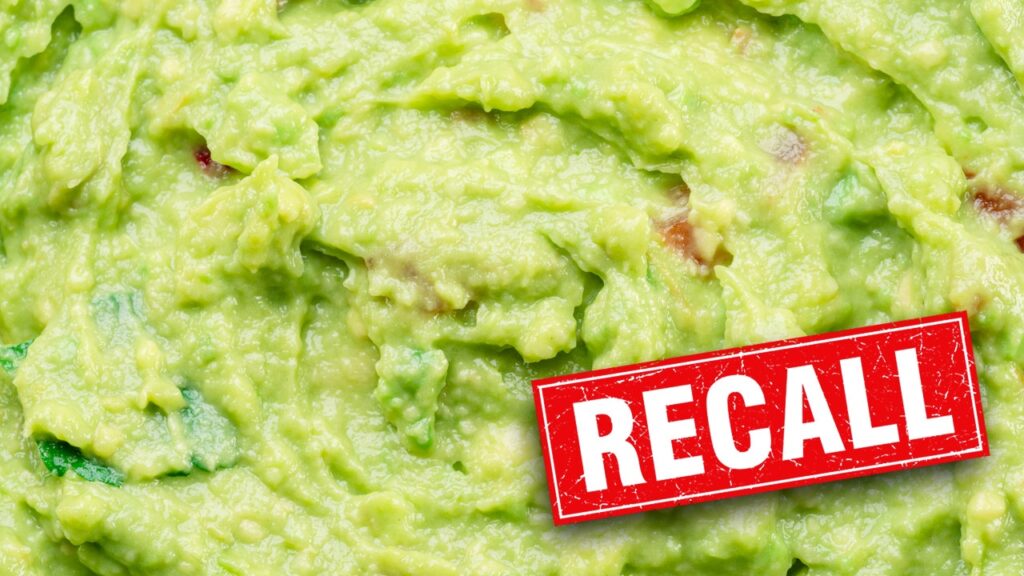:max_bytes(150000):strip_icc():format(jpeg)/INV_Computer_Job_Apps_GettyImages-1352002665-1d0e77f230b74d738d27d506b93c7c15.jpg)
What Is Kraken?
Kraken is a cryptocurrency exchange based in San Francisco where market participants can trade various cryptocurrencies bought or sold with fiat currencies. As of October 2024, Kraken was ranked seventh by CoinMarketCap for spot and derivatives trading. It had an average daily trading volume of roughly $283 million in the spot market and $217 million in the derivatives market.
Cryptocurrencies available on Kraken include bitcoin (BTC), ether (ETH), EOS (EOS), solana (SOL), and non-fungible tokens (NFTs). The Kraken trading platform also allows cryptocurrency derivatives and futures.
Key Takeaways
- Kraken is among the oldest and largest cryptocurrency exchanges in the U.S. and globally.
- Kraken offers a wide range of products and services, making it a one-stop shop for spot trading, margin trading, futures trading, over-the-counter trading, staking, perpetuals, and has an NFT marketplace.
- Like other cryptocurrency exchanges, Kraken has encountered difficulties complying with laws and regulations.
On Nov. 21, 2023, the Securities and Exchange Commission (SEC) sued Kraken in court, accusing the U.S.-based cryptocurrency exchange of commingling customer and company funds and operating an unregistered securities exchange, clearing agency, and broker-dealer. Kraken filed to have the charges dismissed in February 2024, but in August, a federal judge ruled that the lawsuit was valid, allowing it to go to trial.
History of Kraken
Kraken was established in 2011 and formally launched trading operations in 2013 under the ownership of Payward Inc. The current CEO is David Ripley, who replaced co-founder Jesse Powell in 2022. The exchange aims to facilitate the easy movement of money between digital wallets and linked bank accounts for investors to trade cryptocurrencies and digital assets efficiently.
Kraken’s Initial Market
Before Kraken became a leading crypto exchange, it primarily served European customers through a now-cancelled partnership with Germany-based Fidor Bank and had just started operating in Japan. It also tried to help creditors of the defunct exchange Mt. Gox locate their bitcoin.
In 2016, Kraken announced its significant progress in these investigations and approved numerous claims from thousands of Mt. Gox creditors.
In 2014, as virtual currencies became more popular, Kraken and the exchange Coinbase were selected to feed BTC market data to Bitcoin price indices on the Bloomberg terminal. Integration with a leading market data provider helped Kraken gain popularity among the financial community. Bloomberg clients could access prices, charts, news, and social media posts for a cryptocurrency through Bloomberg services for the first time.
Expanding Services
Shortly afterward, Kraken partnered with the financial market chart service provider TradingView. The exchange has continued to add more cryptocurrencies to its trading platform and enabled funding denominations in various fiat currencies, including the U.S. and Canadian dollars, euro, and Japanese yen.
Kraken continued to grow in 2015, boosted by the launch of several new features popular with retail investors and professionals. The exchange introduced a margin trading facility and dark pools, allowing large orders to be placed discreetly and executed against similar-sized orders for a price advantage.
Beginning in 2016, Kraken expanded from spot markets into derivatives, futures, specialized markets, and other regions outside the U.S. Kraken now operates in countries across North America, Europe, Asia, and Latin America, excluding jurisdictions barred by regulations and sanctions. It has obtained registrations and licenses in the U.S., U.K., Canada, Australia, Italy, Europe, and Abu Dhabi in the U.A.E.
In April 2024, Kraken acquired Tradestation Crypto from the online trading and brokerage service Tradestation Group, which Monex Group Inc., a Japanese global financial services company, wholly owned. According to reports, the acquisition of Trade Station, a licensed money transmitter, is intended to expand the exchange’s presence in the U.S.
Kraken and Other Exchanges
Similar to its competitors, Coinbase and Binance, Kraken offers an easy-to-use interface, 24/7 customer support, security features, digital wallets, custodial services, a mobile app, and a variety of the same trading products, services, and funding options.
However, Kraken lists over 290 cryptocurrencies and over 780 cryptocurrency trading pairs, a selection that is smaller than both Coinbase’s and Binance’s. Kraken’s transaction fees also average higher than those of Coinbase and Binance.
Kraken’s trading markets include:
- Spot Trading: Kraken is one of the largest cryptocurrency spot trading exchanges in the world. It offers a wide range of cryptocurrency trading pairs for normal buying and selling, including Bitcoin (BTC), Ethereum (ETH), Tether (USDT), and USD Coin (USDC).
- Margin Trading: The exchange offers margin trading for several cryptocurrency trading pairs. Margin traders can borrow funds from Kraken to trade with, which can amplify their profits or losses.
- Futures Trading: Kraken offers futures trading to speculate on the future prices of a select number of cryptocurrency pairs.
- Over-the-Counter (OTC) Trading: The exchange offers OTC trading for large cryptocurrency transactions for institutional investors and other high-net-worth individuals.
- Staking: Kraken offers staking for several cryptocurrencies, allowing users to earn rewards by holding their tokens.
- NFT Marketplace: It also offers an NFT marketplace where users can buy, sell, and create tokenized digital assets, such as artwork and collectibles.
- Application Programming Interface (API): Kraken provides APIs that allow developers to integrate Kraken’s services into their own trading applications.
Concerns About Kraken
Kraken has fallen under scrutiny for falling short of government regulations and running into legal troubles that could impact its operations.
State of New York
In August 2015, Kraken exited the New York market in response to the state’s introduction of the BitLicense, a regulatory framework for virtual currency businesses. The company expressed strong opposition to the BitLicense, arguing it was “abominable” and overly onerous.
A BitLicense is a business license issued by the New York State Department of Financial Services (NYDFS) to companies that engage in virtual currency business activity in New York. BitLicense regulations require applicants to provide detailed information about their business operations, including their financial condition, risk management practices, and compliance procedures. The NYDFS also conducts an extensive background check on all applicants before issuing a BitLicense.
Once a company is granted a BitLicense, it is subject to ongoing regulatory oversight by the NYDFS. The NYDFS may conduct periodic examinations of BitLicensees to ensure they comply with all applicable laws and regulations. The NYDFS may also take enforcement action against BitLicensees that violate the BitLicense regulations.
In September 2018, the New York Attorney General (NYAG)’s office issued a report on the “integrity” of cryptocurrency exchanges, which raised concerns about Kraken’s practices. The report alleged that Kraken and other crypto exchanges had failed to properly verify customer identities, prevent market manipulation, and protect against money laundering. As a result, the NYAG referred the exchanges to another state agency, the NYDFS, to investigate potential violations of state law.
Kraken had refused to cooperate with the report’s fact-finding requests prior to its publication. After the report’s publication, Kraken’s then-CEO Jesse Powell denied the allegations, accused the NYAG of unfairly targeting the cryptocurrency industry, and likened New York state to an “abusive, controlling ex.”
Office of Foreign Assets Control
In November 2022, the U.S. Department of the Treasury’s Office of Foreign Assets Control (OFAC) announced a settlement with Kraken over allegations that the company had violated U.S. economic sanctions on Iran.
The OFAC alleged that Kraken processed over 826 transactions, totaling approximately $1.68 million, for individuals who appeared to be located in Iran between October 2015 and June 2019. The alleged transactions violated U.S. anti-money laundering (AML) and sanctions prohibiting American companies from doing business with Iranian entities.
Kraken denied the allegations but agreed to settle with the OFAC for $362,158.70. The company also agreed to invest an additional $100,000 in certain sanctions compliance controls.
Securities and Exchange Commission
In February 2023, the U.S. Securities and Exchange Commission (SEC) charged Kraken with failing to register its crypto asset staking-as-a-service program as a security.
The SEC alleged that Kraken’s staking program offered investors returns in exchange for their tokens and that these returns were similar to the dividends paid by traditional securities. As a result, the SEC argued that Kraken’s staking program was an unregistered security and that it should have filed a registration with the SEC.
Kraken denied the SEC’s allegations but agreed to settle with the SEC for $30 million. The company also agreed to cease offering crypto asset staking services.
The SEC sued Kraken again in November 2023 for allegedly operating as an unregistered securities exchange, broker, dealer, and clearing agency. This was the second time in less than a year that the SEC had taken action against Kraken.
The SEC’s November 2023 lawsuit was similar to the previous lawsuit, but it also alleged that Kraken had failed to register its spot trading platform as an exchange. The SEC argued that Kraken’s spot market is a platform where investors can trade securities and that Kraken should have registered with the SEC as an exchange.
Kraken again denied the SEC’s allegations, arguing that its spot trading platform is not an exchange and that it would “vigorously defend” itself in court. In February 2024, the exchange filed to have the case dismissed, but in August, a district court judge ruled that the lawsuit had merit and could proceed.
Does US Customers Use Kraken?
Kraken is available to traders in most states in the U.S., but there are restrictions on certain activities that might be allowed in other countries.
How Do I Get My Money Out of Kraken?
To withdraw cash from Kraken, click on “Withdraw Cash” and select the currency you’d like to withdraw. Next, select the method, such as ACH or wire, click continue, and add the bank account to which you’d like the funds to be deposited. Add the amount you’d like to withdraw and confirm the transaction.
How Does Kraken Exchange Work?
Kraken is a cryptocurrency exchange, which facilitates currency exchanges and transactions.
The Bottom Line
Kraken, despite facing challenges associated with the unpredictable and risky nature of cryptocurrencies, remains a popular virtual currency trading platform. It offers spot, futures, margin, perpetual, and over-the-counter trading in addition to non-fungible tokens and staking (in certain jurisdictions).
The comments, opinions, and analyses expressed on Investopedia are for informational purposes only. Read our warranty and liability disclaimer for more info. As of the date this article was written, the author does not own cryptocurrency.



